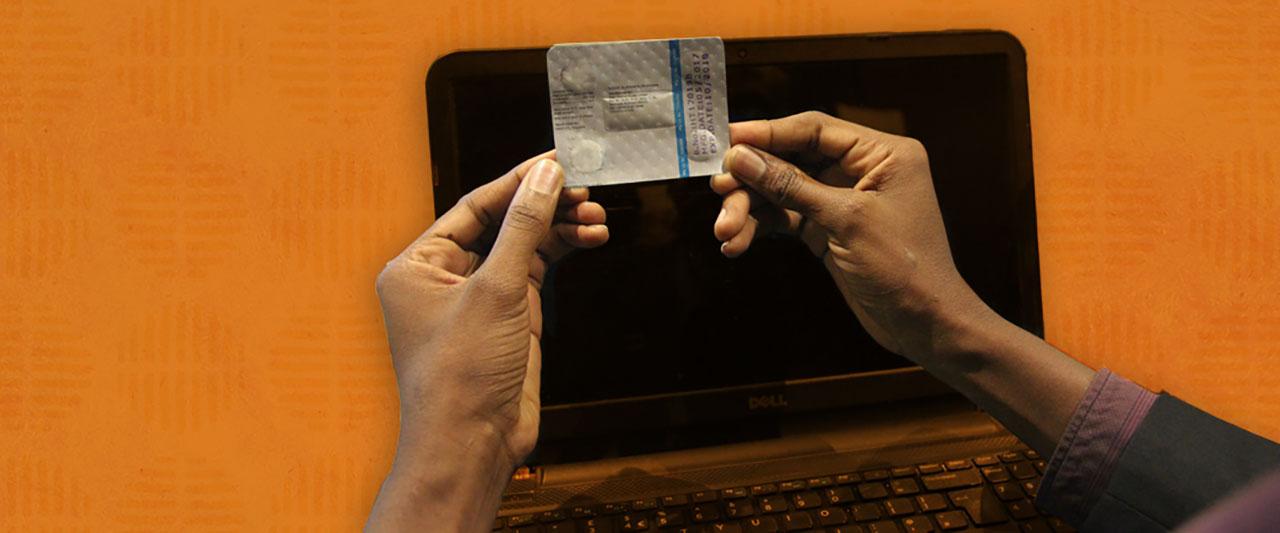After Fiona*, a university student in Kenya, learned she was unexpectedly pregnant, she became depressed. Her parents are strict, and she was nervous to visit them, afraid that her mother would find out. If she continued the pregnancy, Fiona would likely have to drop out of university. She would experience stigma from becoming pregnant before getting married or finishing school: Some women are even disowned for unplanned pregnancies. But in Kenya, abortion is restricted—and unsafe abortion is a leading cause of death and injury for women.
Fiona didn’t know what to do. Her friend, Joyce* could tell something was wrong but she didn’t know that Fiona was pregnant. And Fiona didn’t know then that Joyce had access to abortion pills. “But we sat down and talked about it,” Joyce says, “and I decided to help her.”
Reaching women where they are
As part of her studies at a Kenyan university, Joyce has a license that enables her to buy prescription drugs. For two years—motivated by a desire to help women take control of their reproductive lives—Joyce has run a small business selling abortion pills to those trying to end a pregnancy, and contraceptive pills to those trying to prevent one. She also provides accurate information on how to safely use the pills to induce an abortion, what side effects to expect, and when to seek treatment for complications—and she offers support and follow-up throughout a woman’s abortion self-care experience.
In Kenya, many pharmacies sell misoprostol and mifepristone, which are safe and highly effective drugs used all over the world for abortion. But when women go to pharmacies hoping to buy abortion pills, they can encounter barriers, including “long queues, vigorous screenings and questioning to ascertain whether they are ‘true’ clients,” says Steve Biko, Ipas Africa Alliance community engagement advisor. To avoid these barriers, women often prefer accessing pills from health intermediaries like Joyce, who are often well-known in the community, linking people to solutions for different health problems.
Ipas Africa Alliance Program Director Ernest Nyamato believes that self-managed abortion is appealing for women because it allows for greater autonomy and safety, compared to other less safe methods. Women who go to health intermediaries like Joyce “most likely would not want to access the formal health system, because for them, anonymity and privacy are important,” he says.
Meeting women’s needs
Health intermediaries can help meet women’s reproductive health needs by breaking down barriers and enabling women to self-manage their medical abortions. “It’s very safe, it’s more comfortable, and it’s cheaper,” Joyce says.
It’s also more confidential. When a woman goes to a hospital for an abortion with pills (or medical abortion), “you have to see the cashier. They ask what they’re charging you for, they see the note from the doctor that it’s for abortion—and they give you a look. People don’t want to go through that whole process,” Joyce says. Women who purchase pills from Joyce only need to interact with her—and “I’m a young person; I’m not judging them.”
Walter* is also a university student and health intermediary. He gets abortion pills from friends in the medical field or pharmacists. He receives dosing instructions from them, which he shares with the people who purchase from him. Like Joyce, Walter follows up with women, and answers any questions they may have throughout the process. He is motivated to help women, he says, “because they don’t have access to these drugs. Why not help them?” He believes that there must be “easier channels to make the drugs available” for women; the current system pushes many women to continue unwanted pregnancies or use unsafe providers.
Ipas already works with health intermediaries like Joyce and Walter and will continue to do so to ensure that they and others have accurate information to share with women. The World Health Organization’s recommendations (2019) recognize the importance of self-care, including medical abortion self-care and the expansion of the involvement of community providers. Nyamato says it’s important for health intermediaries to have correct information on dating a pregnancy, what to do if women experience side effects and where they can go for treatment of complications.
“We are in the process of redefining what is a provider in the context of medical abortion self-care,” says Nyamato. In addition to traditional health-care providers, the definition “also includes informed individuals—like intermediaries—or the girl or woman herself.”
*Names have been changed.
For more information, contact [email protected].


